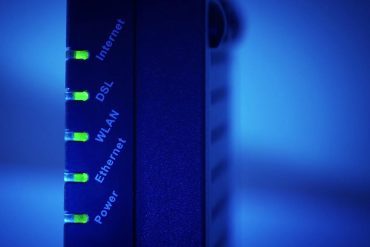The important thing is: can. But you don’t have to. Node operators can stick with the old software.
Advantages and disadvantages of soft forks
Of course, like everything in life, it has its advantages but also disadvantages. The advantage is that the conversion can happen sequentially, and that downstream compatibility is ensured. Furthermore, the network is completely cohesive, so unlike a hard fork, there is no separation and thus is the case with new coins such as Bitcoin Cash (BCH) or Bitcoin Gold (BTG).
But what is the harm? Well, it’s clear that such an update ultimately only works if most node operators also participate. Because if only a few do, then there is no point in updating. Yes, in the end it will probably lead to node operators who implemented the update to revise their decision and downgrade again. The update may have failed.
If a soft fork fails, a hard fork can…
It is therefore essential that even with such soft forks the maximum possible consensus is achieved within the network operators. The same should be the case with the taproot, which is to be introduced with the so-called Schnore signatures. But let me write here consciously, because in the past it has been shown that some people who initially agreed to such updates have changed their mind over time.
At the time, for example, there was widespread agreement that anyone wanted to support the SegWit update at the time. In addition, the block size for bitcoin (BTC) should also be increased during this update. But over time, the block size increase was planned at the same time that SegWit appealed to fewer and fewer network operators, which eventually led to the Bitcoin Cash hard fork.
But it is good enough for hard fork and soft fork and back taproot. What is this update really about?
Schnorr Signature and Taproot – are inextricably linked!
Taproot aims to replace the functionality of Bitcoin Script, which still comes from Satoshi Nakamoto, in a way that improves data security and network security and last but not least, scalability. At the time, Nakamoto used the Elliptic Curve Digital Signature Algorithm (ECDSA) signature scheme because it was widely used, well understood, secure, compact, and open source.
However, Schnorr signatures, which were developed by the German mathematician Claus Schnorr, lost their patent protection in 2008 and offer some advantages over ECDSA, for example they are particularly known for their efficiency. But why am I writing anything about these Schnorr signatures? Well, because the taproot only makes sense if the Schnorr Digital Signature Scheme (SDSS) is switched on at the same time.
What exactly should the Taproot update bring?
Well, the first and foremost reason for Taproot is to improve privacy. Taproot doesn’t turn bitcoin into a privacy coin a la Monero (XMR), but development is basically going in that direction. But this is not the only advantage. Thanks to the taproot in conjunction with SDSS, there will probably be a leap in efficiency in the bitcoin network. Specifically, Taproot means:
– Reduction of data to be transmitted and stored on the blockchain
– Increase in transactions per block (higher TPS rate!), and last but not least
– low transaction cost
– Along with better privacy protection at the same time a
– Improve network security (even without increasing the hash rate)
Conclusion: Taproot would be the right answer to Chinese miner attacks
Recently, the bitcoin network faced attacks on local miners by Chinese communists. As below: https://www.blockchain.com/charts/hash-rate As you can see, the so-called hash rate has recently dropped from around 180 million TH/s to around 125 million TH/s as a result of these attacks. Of course, this means that the security of the bitcoin network is significantly reduced, even though it still seems to be problem-free.
As miners are now fleeing China but finding a new home in Kazakhstan, Russia or the United States, this problem is likely to be only of a temporary nature. Nevertheless, an update that further improves network security would certainly be a very desirable response to the attack. So I really hope it will.
For this to happen, however, most node operators must update their software. Of course, this doesn’t happen overnight. This can take weeks or even months, depending on how well the soft fork is accepted. It is less important how long it takes, but rather that it is done. Because if the soft fork is successful, it will be a huge leap forward for Bitcoin. Because it will be even better, more efficient and safer!
I regularly observe and comment on the development of bitcoin in our premium service.So“
Read also:

Reader. Organizer. General creator. Zombie fanatic. Alcohol advocate. Food junkie. Bacon ninja.





